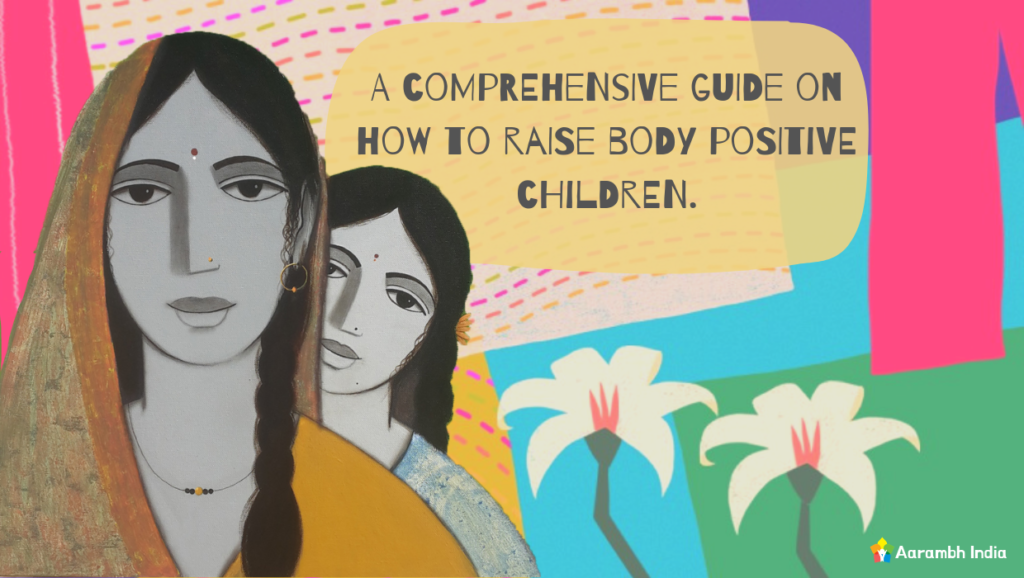Bodies beyond shame: A comprehensive guide on how to raise body positive children

-‘My dad told me that even if I don’t eat for the next three days, I will be fine.’
-‘Talking about sex and body was such a bad thing at home, that even though my cousin made me uncomfortable, I couldn’t tell my parents. What if they would have blamed me?’
As a practising therapist I have heard such statements from teenager and adults multiple times. Children should never feel apprehensive to share anything to their parents. Parenting is all about making children feel safe, happy and encourage them to achieve and do what gives them meaning.
Now, How does parenting intersects with body positivity and sex positivity?
In simple terms, body positivity is about being happy and feeling good in the body that you inhabit.
Sex positivity is the idea that as long as sex is consensual and safe, no one should be shamed for their need for sexual gratification, or, if anyone is asexual and do not seek sexual intimacy, they shouldn’t be shamed either.
These are basic attitudinal requirements for an adult to be happy with their body and sexuality, and as a result, have good self-esteem. And yet, so many people have had this lack while growing up. A lot of self-esteem problems begin when parents or larger systems shaming children for their basic form of existanse. For example, girls are discouraged to explore and occupy larger spaces, and so, they hold very little space by making themselves small, not sitting up straight. This, in addition to other factors, make them feel like they always have to do what’s told and can’t change the order of things.
Parenting comes with the responsibility of affirming the child’s self-image, making them feel that they belong to this world and aren’t shamed for their bodies.
Again, a lot of parents are conflicted with the thought that what if they are encouraging their child’s unhealthy life choices by not shaming their body?
Well, firstly, when a child feels good about themselves, they will do their best wherever they are by making healthier choices. They understand the pitfalls of the society around them, and skip them if needed.
Secondly, body positivity is not about hating your body. It doesn’t encourage unhealthy lifestyle or eating choices. It expands and amplifies the fact that people with all kinds of bodies have a right to exist. Besides, a lot of fat shaming passes as health information.
For a lot of people, losing that weight and keeping it off is just not possible. They may have metabolic diseases, genes that keep them at a certain weight or simply a higher set point. More importantly health has nothing to do with weight. Studies show that fitness is more about strength and flexibility, not the level of fat.
To understand the nuances of Sex and body positivity let’s look into the simple but important do’s and don’ts while raising a child.


It is important to be mindful of what information and behaviour we are perpetuating to children. It is ok to not have the right answers at times. Children do not need to feel that parents are always well-informed and never wrong. Children need to see that parents can be wrong, they too may apologise and they may not have all the answers at all the times. But the trick is to be honest and explore the process of mutual learning.
Written by
Sadaf
A psychologist by profession. She has helped her clients deal with a range of mental health issues and the environmental contributors of those. Thus, she envisions a world of socially just mental healthcare and make the field ethical and accessible for all.







